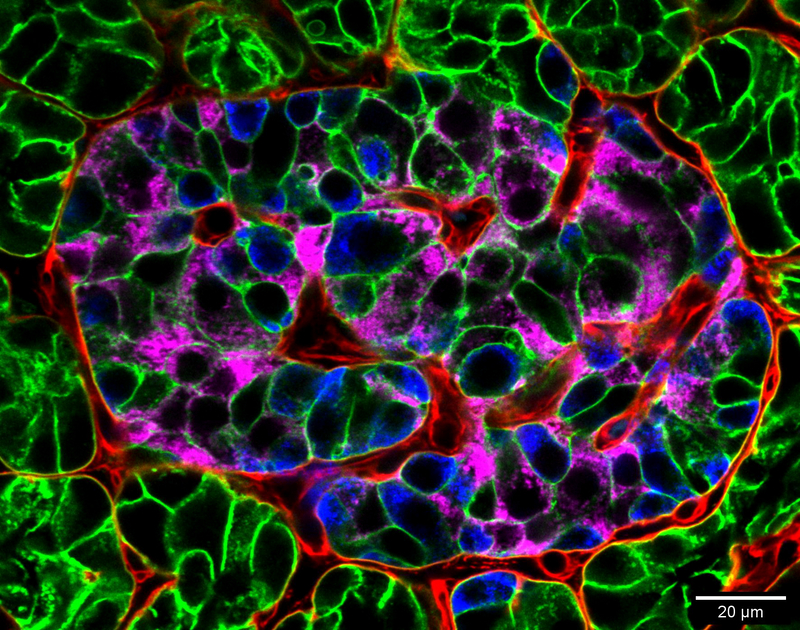About
The SFVAHCS Division of Endocrinology and Metabolism program uses a comprehensive, multidisciplinary approach to treating hormone-related diseases and metabolic disorders.
Members of our division are world renowned and distinguished in their research and clinical care. Our division is located and managed de-centrally at three campuses of the University of California, San Francisco: the San Francisco VA Medical Center, the UCSF Medical Center at Parnassus, and the Zuckerberg San Francisco General Hospital.
VISIT OUR UCSF ENDOCRINOLOGY AND METABOLISM WEBSITE
Education
The SFVAHCS Division of Metabolism and Endocrinology is part of the three hospital Endocrine Training Program.
The Training Program’s Endocrine Seminar Series for Endocrine Fellows, housestaff and students rotating through any of the Endocrine Services of the three hospitals is run by Dr. Daniel Bikle of the SFVAHCS. This is a weekly seminar series that runs all year long with extra sessions in the summer covering Endocrine emergencies.
The Division of Metabolism and Endocrinology hosts outpatient rotations for residents and combined inpatient/outpatient rotations for medical students. On Friday afternoon, we have a case conference and a journal club.
Learn more about the Endocrine fellowship
Patient Care
We provide care for all endocrinological disorders, with focus on the following areas:
- Adrenal Tumors and Adrenal Insufficiency
- Bone Disease including Osteoporosis and Osteomalacia
- Calcium Metabolism, including Hyperparathyroidism and Hypoparathyroidism
- Diabetes Mellitus
- Diabetes Insipidus
- Diabetes Insipidus
- Hypogonadism
- Lipid Disorder
Research
Carl Grunfeld, MD, PhD, studies how infection and inflammation cause changes in metabolism and body composition. His work has spanned basic science, direct patient research, epidemiology and big data.
 His group demonstrated that the changes in triglyceride and HDL metabolism are part of the acute phase response and protective against infection and inflammation. They also demonstrated that many of the changes promote atherosclerosis (HDL is changed from “good cholesterol” to “bad cholesterol”). Ongoing studies examine whether enhanced therapy for diseases such as HIV and Rheumatoid Arthritis reverse such deleterious effects.
His group demonstrated that the changes in triglyceride and HDL metabolism are part of the acute phase response and protective against infection and inflammation. They also demonstrated that many of the changes promote atherosclerosis (HDL is changed from “good cholesterol” to “bad cholesterol”). Ongoing studies examine whether enhanced therapy for diseases such as HIV and Rheumatoid Arthritis reverse such deleterious effects.
His group described the metabolic effects of HIV infection and how they would promote atherosclerosis. They demonstrated which anti-retroviral drugs had specific metabolic consequences. They developed the definitive definition of HIV-associated lipodystrophy. Earlier work demonstrated that the Wasting Syndrome of AIDS was not the direct result of HIV, buy caused by secondary infection and poor recovery after treatment. As a consequence, therapies were developed for AIDS wasting that improved the quality of life.
Daniel Bikle, MD, PhD directs a basic research laboratory that focuses on two major areas: 1) calcium and vitamin D regulation of keratinocyte differentiation and function, 2) hormonal regulation of bone development, remodeling, and response to environmental stresses. In the first area Dr. Bikle and his lab are currently pursuing two major projects: a) the role of the vitamin D receptor in the prevention of skin cancer and b) the role of vitamin D and calcium signaling in epidermal wound repair. In the second area Dr. Bikle and his lab are currently pursuing 3 major projects: a) the role of IGF1 signaling in fracture repair, b) the role of IGF1 signaling in the development of post traumatic osteoarthritis, and c) the role of IGF1 signaling in the response to mechanical load. Dr. Bikle is author of over 400 peer reviewed publications, book chapters and reviews.
